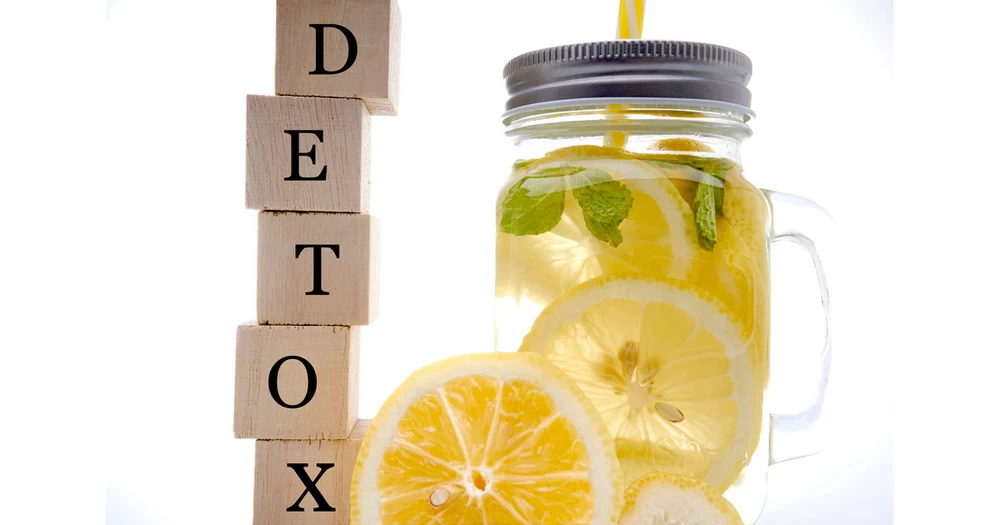Table of Contents
In recent years, detox diets have gained immense popularity as a quick fix for cleansing the body and kickstarting weight loss. With promises of increased energy, glowing skin, and improved health, it’s no wonder that many people are curious about these diets. But what’s the deal with detox diets? Are they truly beneficial, or are they just another fad? Let’s delve into the facts and fiction surrounding detox diets.
What Are Detox Diets?
Detox diets are short-term dietary interventions designed to eliminate toxins from the body. These diets typically involve a period of fasting followed by a strict regimen of raw vegetables, fruits, juices, and water. Some detox programs also include supplements, herbs, teas, and other specific foods aimed at boosting the detoxification process.
The Promise of Detox Diets
Why People Are Drawn to Them:
- Cleansing: Many believe detox diets can cleanse the liver, kidneys, and digestive system, removing harmful toxins accumulated from processed foods, pollution, and lifestyle choices.
- Weight Loss: Detox diets often result in rapid weight loss due to calorie restriction and elimination of certain food groups.
- Improved Energy and Well-Being: Proponents claim that detox diets can lead to increased energy levels, better digestion, clearer skin, and enhanced mental clarity.
The Science Behind Detox Diets
Detoxification Process:
- The body naturally detoxifies itself through the liver, kidneys, digestive system, skin, and lungs. These organs work continuously to filter and eliminate toxins.
- While certain foods and nutrients can support these processes, the body is generally efficient at self-detoxification without the need for extreme dietary changes.
Nutritional Perspective:
- Detox diets are often low in protein and calories, which can lead to muscle loss and nutrient deficiencies if followed for extended periods.
- The initial weight loss on detox diets is usually due to loss of water weight and glycogen stores rather than fat loss.

Potential Benefits of Detox Diets
Short-Term Benefits:
- Increased Hydration: Detox diets often encourage higher water intake, which can improve hydration and support overall health.
- High Intake of Fruits and Vegetables: These diets can boost the consumption of vitamins, minerals, and antioxidants from fruits and vegetables.
- Mindful Eating: Detox diets can promote awareness of food choices and encourage healthier eating habits.
Psychological Boost:
- For some, completing a detox diet can provide a sense of accomplishment and a psychological boost, motivating them to make longer-term healthy lifestyle changes.
Potential Risks and Downsides
Nutrient Deficiencies:
- Prolonged detox diets can lead to deficiencies in essential nutrients like protein, fat, vitamins, and minerals, impacting overall health and well-being.
Metabolic Slowdown:
- Extreme calorie restriction can slow down metabolism, making it harder to maintain weight loss in the long term.
Digestive Issues:
- Some people may experience digestive issues like diarrhea, bloating, or nausea due to sudden changes in diet and increased fiber intake.
Not Sustainable:
- Detox diets are not designed for long-term adherence and can lead to yo-yo dieting, which is detrimental to metabolic health and weight management.
A Balanced Approach to Detoxification
Healthy Alternatives:
- Instead of extreme detox diets, focus on a balanced and sustainable approach to detoxification through a healthy diet and lifestyle.
- Hydration: Drink plenty of water to support kidney function and overall health.
- Fiber-Rich Foods: Incorporate fiber-rich fruits, vegetables, and whole grains to support digestion and regular bowel movements.
- Lean Proteins: Include lean proteins like fish, chicken, beans, and legumes to maintain muscle mass and support metabolic functions.
- Healthy Fats: Consume healthy fats from sources like avocados, nuts, seeds, and olive oil to support cellular function and nutrient absorption.
- Regular Exercise: Engage in regular physical activity to boost circulation, support detoxification, and maintain a healthy weight.
Lifestyle Habits:
- Sleep: Prioritize adequate sleep to allow the body to repair and rejuvenate.
- Stress Management: Practice stress-reducing techniques like meditation, yoga, and deep breathing to support overall well-being.
- Limit Processed Foods: Reduce intake of processed foods, alcohol, and added sugars to minimize toxin exposure.
Conclusion
While detox diets can offer short-term benefits and a psychological boost, they are not a miracle solution for long-term health and weight management. The body is naturally equipped to detoxify itself, and supporting this process through a balanced diet and healthy lifestyle is the most sustainable approach. By focusing on hydration, nutrient-dense foods, regular exercise, and good lifestyle habits, you can promote natural detoxification and achieve lasting health benefits. Remember, the best way to maintain a healthy body is through consistent, balanced practices rather than quick fixes.



